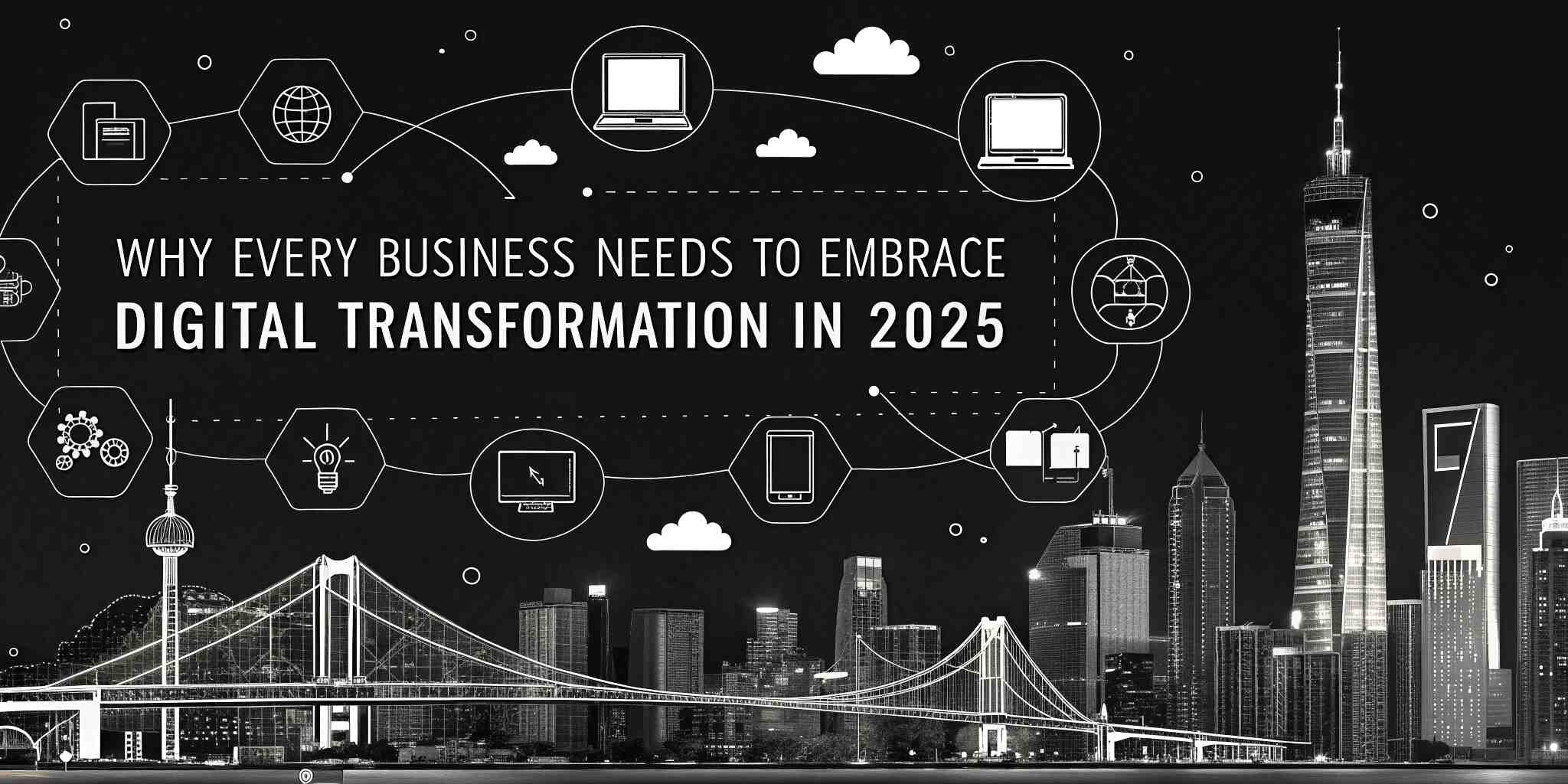As we move deeper into the digital age, businesses across every industry are realizing a powerful truth: digital transformation is no longer a choice—it’s a necessity. In 2025, the pace of technological change is faster than ever, and companies that fail to adapt risk being left behind.
From artificial intelligence (AI) and automation to cloud computing and data analytics, the tools for innovation are within everyone’s reach. The question is no longer “Should we go digital?” but rather “How fast can we do it?”
1. What is Digital Transformation?
Digital transformation is the process of integrating digital technologies into all areas of a business—fundamentally changing how it operates and delivers value to customers. It’s not just about technology adoption; it’s about creating a culture of innovation and continuous improvement.
For example, shifting from manual documentation to cloud-based collaboration tools, or from traditional marketing to AI-driven digital campaigns, are all steps toward transformation.
2. Enhanced Efficiency and Productivity
One of the most immediate benefits of digital transformation is efficiency. Automation tools handle repetitive administrative tasks such as data entry, report generation, and scheduling—freeing employees to focus on strategic decision-making.
In 2025, businesses that leverage AI and machine learning are streamlining operations like never before. Chatbots, predictive analytics, and workflow automation are reducing human errors, cutting costs, and accelerating performance.
3. Improved Customer Experience
Modern customers expect instant service, personalized recommendations, and seamless online experiences. Through digital transformation, businesses can deliver exactly that.
Data analytics and AI-driven insights allow companies to understand customer preferences, anticipate needs, and tailor offerings. From personalized email campaigns to 24/7 virtual assistance, digital transformation helps businesses build stronger, more satisfying relationships with their clients.
In fact, studies show that companies prioritizing digital customer experiences report higher retention and satisfaction rates.
4. Data-Driven Decision Making
Gone are the days when businesses relied solely on intuition. Today, data is the new currency of success. Digital transformation enables companies to collect, analyze, and act upon massive amounts of data in real time.
Advanced analytics tools provide actionable insights into consumer behavior, market trends, and operational performance. This data-driven approach ensures that every decision—from marketing strategies to product development—is backed by evidence, not guesswork.
5. Agility and Scalability
The business world in 2025 demands adaptability. Digital transformation empowers organizations to pivot quickly in response to market changes, economic shifts, or emerging opportunities.
Cloud computing and scalable IT infrastructure make it possible for businesses to expand operations without significant upfront investments. Whether it’s managing remote teams or launching new services, digital tools provide the agility needed to grow efficiently and securely.
6. Competitive Advantage in a Tech-Driven Market
In a competitive global economy, embracing technology is the key to survival. Companies that digitize faster often gain a first-mover advantage, offering innovative solutions that attract customers and set new industry standards.
For instance, retailers using augmented reality (AR) for virtual try-ons, or financial institutions employing AI for risk assessment, are redefining customer expectations and outperforming slower competitors.
7. Building a Culture of Innovation
Digital transformation is not just about adopting tools—it’s about embracing a mindset of continuous evolution. Successful businesses in 2025 are those that encourage employees to experiment, innovate, and adapt.
By fostering collaboration and investing in digital literacy, companies can empower their teams to leverage technology effectively and creatively.
8. Overcoming Challenges in the Digital Journey
While digital transformation offers immense benefits, it’s not without challenges. Data privacy, cybersecurity, and resistance to change remain key concerns. However, these obstacles can be mitigated through proper planning, employee training, and the adoption of secure, compliant technologies.
With the right strategy, digital transformation can be executed smoothly—bringing long-term value and sustainability.
Conclusion
Digital transformation is the bridge between today’s business practices and tomorrow’s possibilities. In 2025, companies that harness automation, AI, and data-driven technologies will lead their industries—those that don’t may struggle to remain relevant.
Embracing digital transformation isn’t about keeping up; it’s about staying ahead. Businesses that act now will not only survive but thrive in a future powered by innovation and intelligence.


